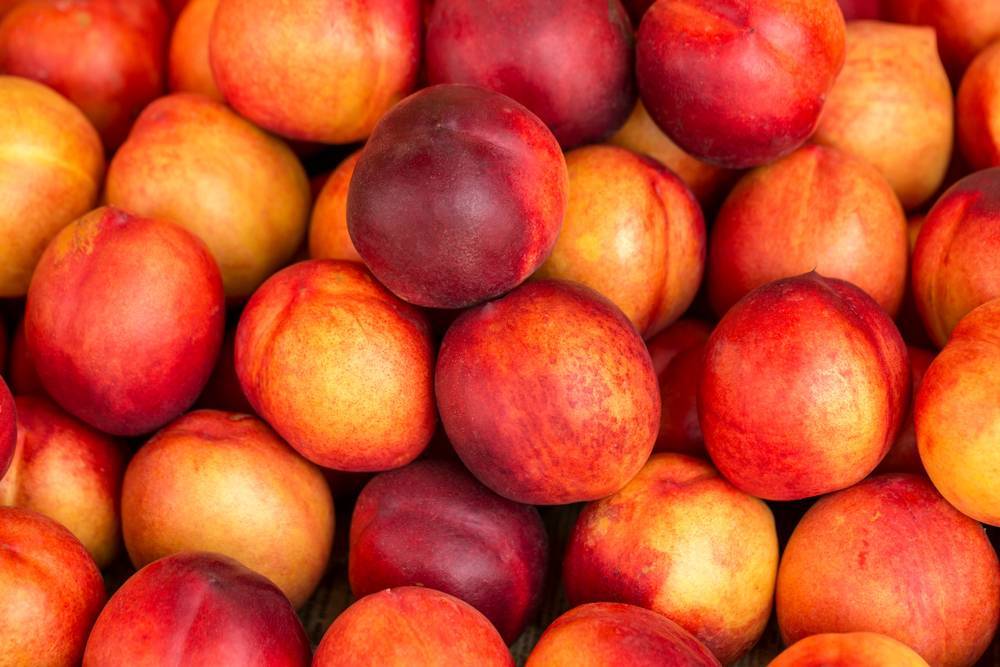The Immediate Impact: Understanding the US Fruit Recall
Recent reports from the United States have triggered a wave of concern across the globe, including in Singapore. A significant fruit recall due to Listeria contamination has raised questions about the implications for Singaporean consumers and the food import industry.
This situation highlights the interconnectedness of global food supply chains and the need for vigilance in food safety practices.
The US Listeria Outbreak: A Closer Look at the Fruit Recall
The ongoing Listeria outbreak in the United States has been linked to a recall of specific fruit products, primarily peaches, nectarines, and plums. This outbreak has led to 11 reported illnesses, 10 hospitalisations, and one fatality across seven states.
The fruits in question were distributed by HMC Farms and sold in stores nationwide between May 1, 2022, and November 15, 2023. The Centers for Disease Control and Prevention (CDC), along with public health and regulatory officials in several states, are actively involved in investigating this multistate outbreak of Listeria monocytogenes infections.
The FDA has also been engaged in the situation, as the outbreak has raised significant public health concerns due to the widespread distribution of the affected fruits. The fruits were sold both individually and in 2-pound bags, branded with “HMC Farms” or “Signature Farms”, and notably, no organic fruits were included in the recall. This situation highlights the critical importance of food safety and the potential impacts of foodborne illnesses on public health.
What is Listeria?
Listeria, specifically Listeria monocytogenes, is a type of bacteria commonly found in soil and water. It has been recognized as a human pathogen for over 50 years. The primary way people get infected is through the consumption of foods contaminated with Listeria. This can cause a rare but serious illness known as listeriosis.
Listeriosis mainly affects individuals with weakened immune systems, such as pregnant women, newborns, elderly persons, and immunocompromised individuals. The organism is found in multiple ecological sites and has been linked to human illness through the ingestion of contaminated foods.
Consumer Awareness: The First Line of Defence
Consumer education plays a crucial role in mitigating the risks associated with foodborne illnesses. Singaporeans are advised to be more vigilant about their fruit consumption, especially when it comes to imported produce. Proper washing and handling of fruits can significantly reduce the risk of Listeria contamination.
Precautions and Safety Measures Against Listeria
Due to its potential to cause serious illness, especially in vulnerable groups, it necessitates specific precautions and safety measures. Here are key guidelines to minimize the risk of listeria infection:
Food Selection and Handling
- Avoid High-Risk Foods: Especially for high-risk groups, such as pregnant women, the elderly, and immunocompromised individuals, it’s essential to avoid foods that are more likely to be contaminated. These include soft cheeses made from unpasteurized milk, raw or undercooked meat, and uncooked seafood.
- Cook Meat Thoroughly: Listeria is killed by cooking, so ensure that meat is cooked to safe internal temperatures.
- Wash Produce: Wash fruits and vegetables thoroughly under running water before eating, cutting, or cooking.
Kitchen Hygiene
- Clean Cooking Surfaces: Regularly clean kitchen surfaces and utensils with hot, soapy water, especially after they’ve been in contact with raw meat, poultry, or seafood.
- Avoid Cross-Contamination: Use separate cutting boards for meats and vegetables. Never place cooked food back on a plate or cutting board that previously held raw food.
Refrigeration and Food Storage
- Proper Refrigeration: Listeria can grow in refrigerated temperatures, so keep your refrigerator at 4°C or lower. Use a fridge thermometer to check.
- Consume Leftovers Quickly: Eat refrigerated leftovers within 3 to 4 days and reheat them to 74°C before consuming.
- Check Expiry Dates: Always check the expiry dates on food products and do not consume them beyond these dates.
For Pregnant Women
- Special Dietary Precautions: Pregnant women should avoid deli meats and hot dogs unless they are reheated to steaming hot. Soft cheeses should be avoided unless they are labelled as made with pasteurized milk.
- Prenatal Care: Regular prenatal check-ups are essential. If there are any symptoms of illness, they should be reported to a healthcare provider immediately.
General Health Measures
- Strengthen Immune System: A healthy diet, regular exercise, and adequate sleep can strengthen the immune system.
- Awareness of Symptoms: Be aware of the symptoms of listeriosis, and seek medical attention promptly if you suspect an infection, especially if you belong to a high-risk group.
By following these precautions, individuals can significantly reduce their risk of listeriosis. It’s important to be vigilant about food safety, especially for those most vulnerable to this infection.
References
- CDC: Listeria Outbreak Linked to Peaches, Nectarines, and Plums. (2023, November 20). Centers for Disease Control and Prevention. https://www.cdc.gov/listeria/outbreaks/peaches-11-23/index.html#:~:text=Posted%20November%2021%2C%202023%20Fast,in%20bags%20branded%3A%20%E2%80%9CHMC%20Farms%E2%80%9D
- Kassraie, A. (2023, November 21). Listeria Outbreak Triggers Fruit Recall. AARP. https://www.aarp.org/health/conditions-treatments/info-2023/fruit-recall-listeria-outbreak.html#:~:text=The%20recalled%20peaches%2C%20nectarines%20and,No%20organic%20fruit%20was%20recalled
- Gellin, B. G. (1989, March 3). Listeriosis. JAMA. https://doi.org/10.1001/jama.1989.03420090077035

